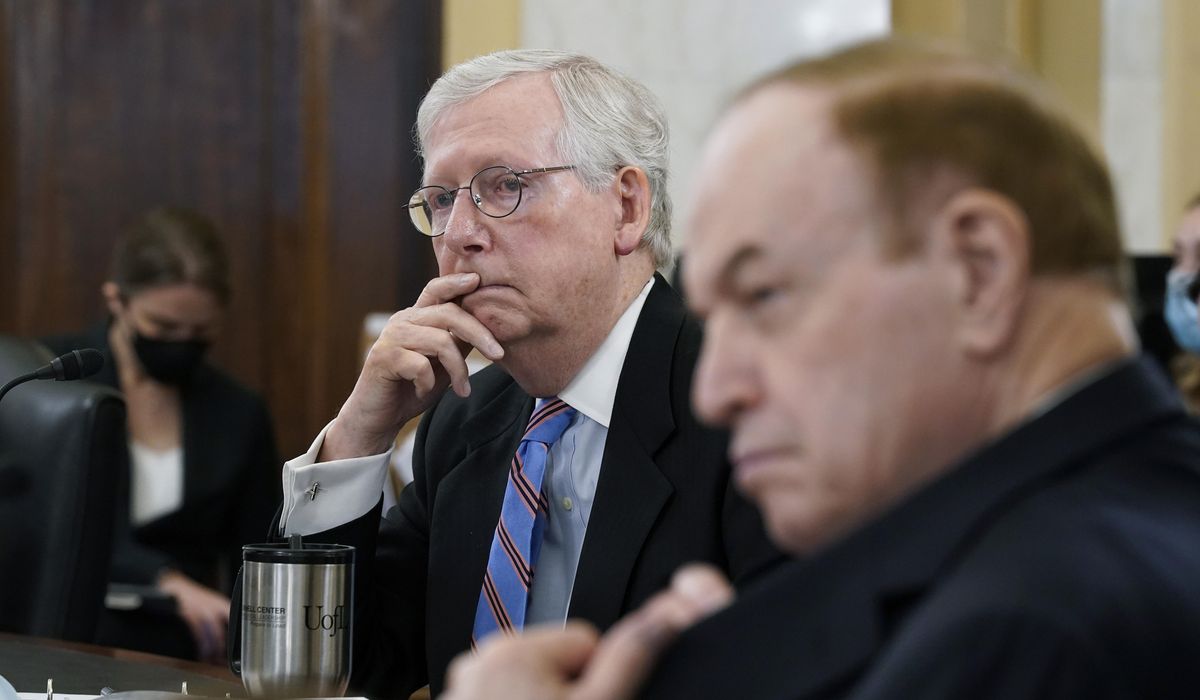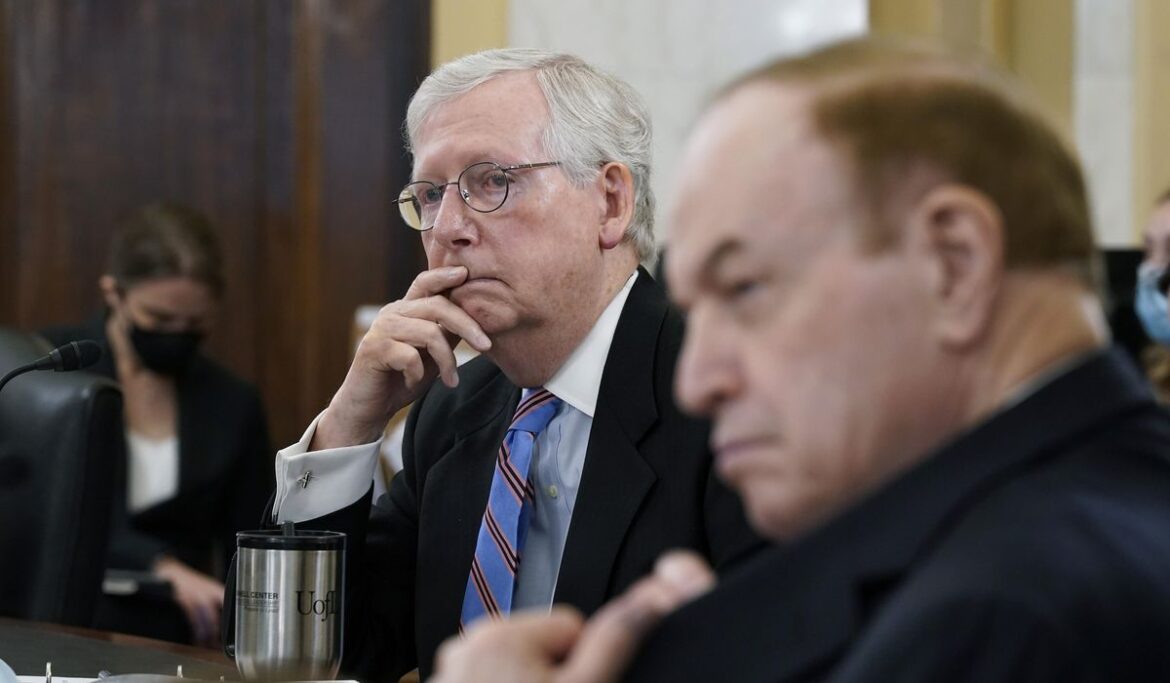
Congress is facing a looming deadline to pass a spending bill and keep the government open past mid-February, but serious gaps exist between Democrats and Republicans over how to move forward.
Lawmakers have to pass a spending bill by Feb. 18 or risk shutting down the federal government. While Republicans and Democrats say a shutdown is unlikely, most lawmakers are unsure if a bipartisan budget deal is possible. It is isn’t, they would have to rely on another short-gap funding measure.
“If we could cut a deal, and it’s something we could live with, that’s what this place is about,” said Sen. Richard Shelby, Alabama Republican. “But it has to be something that would be palatable to our caucus and theirs too — maybe not everything [that] everybody wants.”
President Biden and Democrats are pushing for a bipartisan budget deal that will let them boost funding for agencies and programs. Democrats say such a deal is the only way they being to make their mark on the federal government.
“You have a limited window on a budget, and you never know what’s going to happen in 2022,” said Sen. Chris Murphy, Connecticut Democrat. “If we don’t get a budget now, there’s a chance President Biden will never do a budget with the Democratic Congress.”
Democrats are strongly opposed to a short-term funding measure, even if it extends throughout the year.
The reason is mainly political. At the moment, the federal government is still operating with funding levels approved by Congress under former President Donald Trump.
“Reality as it is, we’re operating on the Trump budget right now,” said Rep. Ken Calvert of California, ranking Republican on the House Appropriations Committee. “It must drive [Democrats] crazy, but that’s what we’re operating under.”
Abiding by Trump-era budget levels has hamstrung efforts to move Mr. Biden’s agenda through the federal bureaucracy.
The budgetary situation has even delayed the implementation of Mr. Biden’s $1.2 trillion infrastructure package.
Despite the measure passing along bipartisan lines last year, the Transportation Department and other agencies have been able to do little with it so far.
That reality is because while Congress has authorized money to be spent on upgrading the nation’s roads and bridges, lawmakers have yet to appropriate the actual funds.
“The infrastructure initiative is greatly hampered by the failure to pass a regular appropriations bill,” said Rep. David Price, North Carolina Democrat and a member of the House Transportation and Infrastructure Committee.
Democrats are thus eager to pass their own budget to remedy that problem. To succeed, they will need to garner the support of at least 10 Republicans in the evenly split Senate to overcome the chamber’s 60-vote filibuster threshold.
GOP lawmakers say a budget deal is possible, provided Democrats agree to keep domestic and defense spending increases equal and leave out divisive issues like federal funding for abortion.
“Number one, Democrats will need to honor the long-standing bipartisan truce that provides parity for defense and nondefense spending growth,” said Senate Minority Leader Mitch McConnell, Kentucky Republican. “Number two, we must have an agreement that we’re going to keep long-standing policy riders in and new poison-pill riders out.”
As of now Democrats and Republicans are wide apart on both fronts.
The White House initially proposed to boost domestic and social welfare spending by 16%, while only raising defense funding by 1.7%.
Democratic lawmakers have compromised slightly, proposing to boost social welfare funding by 13%, while increasing military spending by 5%.
GOP lawmakers say getting their support will be difficult if the proposed increases to social welfare and military spending do not narrow further. They say that since most of the domestic spending increases will go to Democratic priorities, like climate change and racial justice, supporting a budget without adequate increases to military spending will be a tough sell to GOP voters.
Similarly, Democrats are keen to boost social welfare programs, like job training for felons and abortion services, within the budget.
To allow for federal abortion funding Democrats will have to strip from the budget bill longstanding language, known as the Hyde Amendment, that prohibits taxpayer dollars from going to the practice.
“With a conservative Supreme Court taking up a direct challenge to Roe v. Wade, we’ve got to do everything we can to stand up for reproductive health care,” said Sen. Patty Murray, Washington Democrat.
Republicans say any budget bill that excludes the Hyde Amendment is a nonstarter.
“Since the 1970s, abortion has claimed the lives of more than 60 million unborn children,” said Mr. McConnell. “But at the very least, [the] bipartisan Hyde Amendment has ensured that taxpayers’ hard-earned money is not funneled to this brutal practice. A broad, bipartisan coalition agreed” with this stance.
Since such moderate Democrats as Sen. Joe Manchin III of West Virginia support the Hyde Amendment, most doubt that the White House considers it a “red line” in crafting a bipartisan budget.





